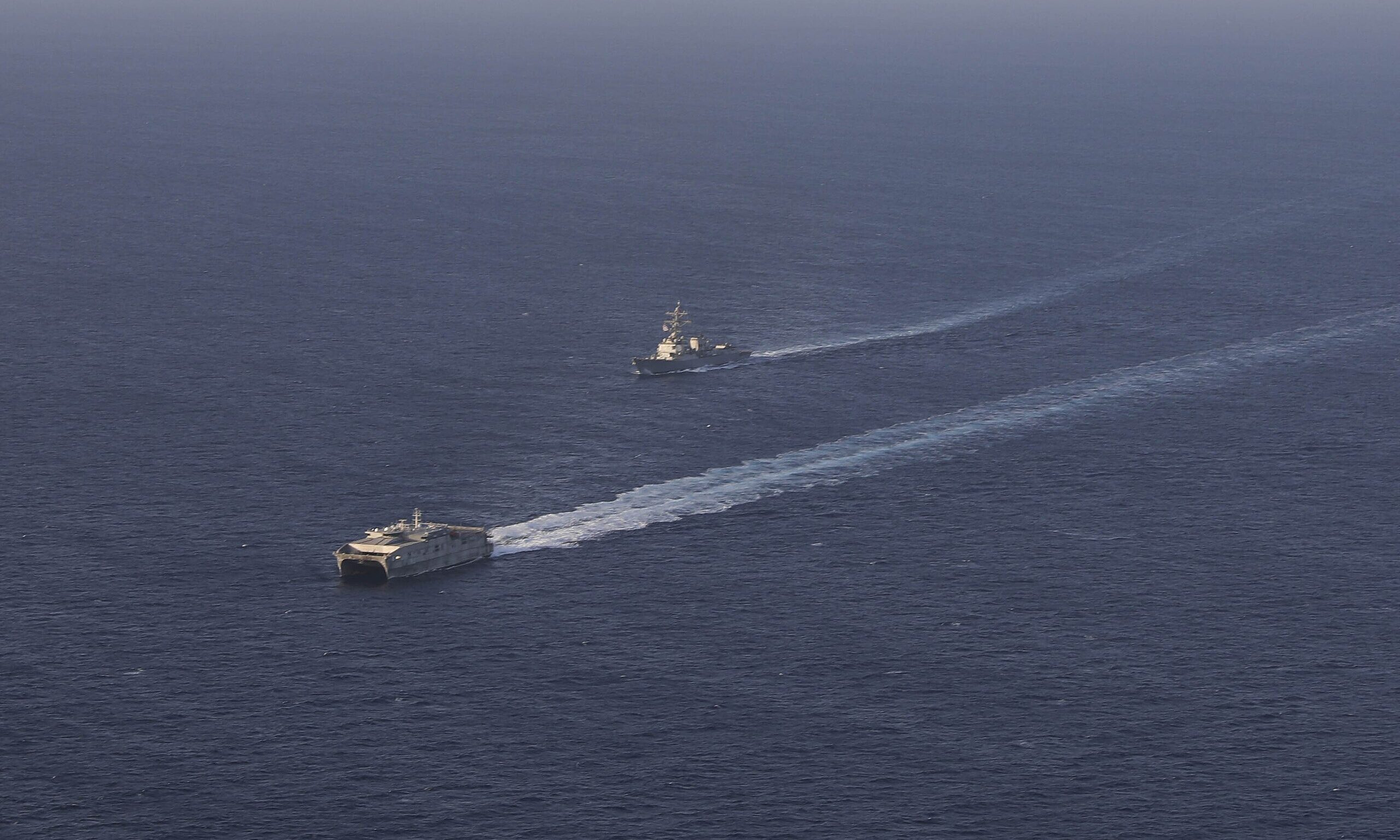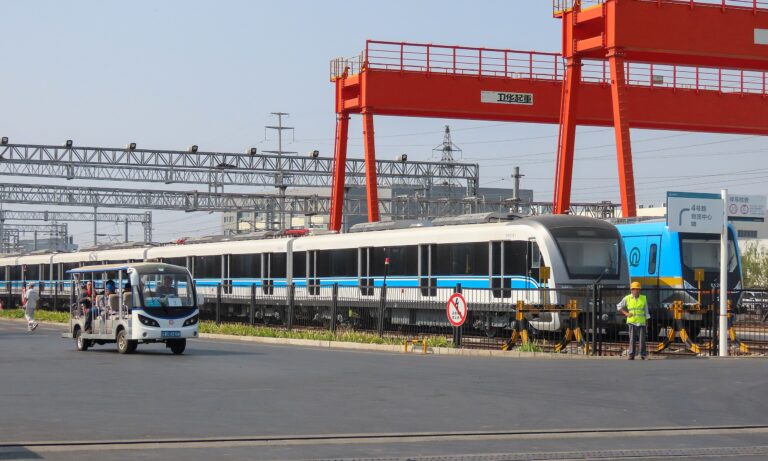China’s Cautious Response to the Red Sea Crisis

As Houthi attacks on shipping lines in the Red Sea continue, China’s economic stakes in the region are becoming increasingly exposed. However, despite the growing costs of the Houthis’ persistent targeting of commercial ships, China’s public reaction has remained relatively cautious. But the longer the conflict continues, the more pressure there will be on China to prove its dedication to becoming a constructive player in the resolution of “hotspot issues.”
This article is part of a series of articles authored by young, aspiring China scholars under the Future CHOICE initiative.
Since Houthi assaults on civilian ships started in November 2023, China has adopted a muted response, with a clear preference to stay on the sidelines of the conflict. It was only recently that Beijing has become more vocal with regards to the developments in the Red Sea. After the US and UK military strikes against Houthi targets in Yemen, China called for an end to attacks against civilian ships and appealed to all “relevant parties to stop adding fuel to the fire.” However, similarly to its reaction to Hamas’ October 7 attack, Beijing has refrained from officially condemning the Houthis for their aggressions and instead called the attacks a “spillover” of the ongoing war in Gaza.
US officials have reportedly pressured China to use its economic leverage and pressure Iran to rein in Houthi attacks in the Red Sea. Beijing has allegedly raised the issue with Tehran, stating that continuous assaults by the militant group will negatively impact the two countries’ economic cooperation, on which Iran is heavily dependent. However, China’s calls for the cessation of attacks have so far been left unanswered, and Iran has denied any such claims of Chinese pressure.
While the US has spearheaded efforts to contain Houthi activities in the Red Sea via its Operation Prosperity Guardian, China has refused to join the US-led task force. As a result, along with the lack of any other military or concrete actions on the part of Beijing, China is positioning itself as a less responsible power in comparison to the US, the exact opposite of what its rhetoric and its Global Security Initiative have been promising. The current Red Sea crisis once again underscores the normative nature of China’s security proposals, which are unlikely to be effective when ‘hard’ military solutions may be necessary. Despite its ongoing efforts to undermine the US position in the region and portraying Washington as gradually withdrawing from the Middle East, Beijing’s lack of capacity and interest in actively participating in the protection of the Red Sea shipping passage, one of the most important global trade routes, might be a sign of its inability to shape the global and regional security architecture.
Economic Impacts
Even though the Houthis have stated that Russian and Chinese ships will not be the targets of the militant group’s attacks, China’s trade and investment are still expected to receive a blow. The Red Sea is a strategic location for Beijing’s 21st Century Maritime Silk Road, connecting China with the Middle East, Africa, and Europe. As such, Beijing recognizes the economic and strategic importance as well as the potential implications of a prolonged conflict in the Red Sea, which could undermine the main pillar of Xi Jinping’s Belt and Road Initiative—global connectivity.
However, the cost-benefit calculations so far show that Houthi attacks on maritime shipping have had a limited impact on China’s trade. Houthis have so far steered clear of oil tankers and avoided targeting Chinese ships. Moreover, Chinese vessels passing through the Red Sea have also been openly signaling their links with China via communication channels in order to avoid being mistakenly targeted. While there has been an increase in shipping costs and insurance premiums for a standard container being sent from China to Europe from $1,500 to $4,000, these values still remain below the COVID-19 levels, where the costs skyrocketed to $14,000. Similarly, the impacts on China’s energy imports have been relatively manageable, with prices jumping by about 4 percent and reaching $78 per barrel (lower than the $84 per barrel before Hamas’ October 7 attack). Consequently, this is unlikely to cause a severe shock to the Chinese economy.
Potentially the biggest impact felt by Chinese shipping companies and exporters is the added time and cost of needing to re-route their vessels away from the Red Sea and around South Africa’s Cape of Good Hope. This can cause a delay in delivery time of around 10 days and lead to soaring freight rates. While 90 percent of China’s cargo was shipped through the Red Sea before the tensions escalated, about 90 percent of that traffic is now diverted to the southern tip of the African continent. The costs incurred due to this lengthy detour are, in combination with an already slowing Chinese economy, posing challenges to Chinese exporters.
A growing frustration is also likely to be felt by Chinese investors, particularly its state-owned enterprises, which Beijing has strongly encouraged to invest billions of US dollars in Egypt’s economy, including its energy, transportation, and logistics sectors. Chinese investors have funded various projects along the waterway, including the waterway’s development, port infrastructure, and new container terminals. Unsurprisingly, the Houthis’ attacks that are dissuading ships from passing through the Red Sea and the Suez Canal might frustrate these investors.
Global Reputation and Influence
The Red Sea crisis is not only putting Beijing’s money at risk, it is also likely to shape China’s future reputation with regards to its ability to play a constructive role in calming escalating tensions. However, for Beijing, the situation is more complex than it might seem. Firstly, China does not have the military capacity to intervene directly, and possibly limited diplomatic capacity with regards to the Houthis. Secondly, joining the US-led efforts could come across as acknowledging Washington’s superiority in the region. As a result, criticizing the US-initiated task force could prove to be an opportunity for China to shift blame on the US for intensifying tensions in the region and to further undermine Washington’s position in the Middle East.
Furthermore, China’s economic and political leverage over Iran is not the only determinant of the level of power Beijing holds over Iranian decisions. Tehran finds itself having to balance different interests, and China’s control over its geopolitical decisions is far from absolute. While it is true that Iran is heavily dependent on China for its oil revenues and trade to keep its economy running, Tehran also perceives its regional alliances and ideological considerations as the driving forces behind its decision-making. Even though China and Iran signed a 25-year cooperation agreement in 2021, some within the Iranian ruling establishment have been unhappy with the level of Chinese commitment to invest in the Iranian economy, questioning the 68 percent decrease in non-oil exports to China in the beginning of 2023 and the low value of investments (merely $185 million since 2021). These disappointing levels of economic benefits derived from Tehran’s cooperation with China, along with Iran’s position as the leader of the “Axis of Resistance” (Houthis in Yemen, Hezbollah in Lebanon, and militias in Iraq and Syria), play an important role in its decision-making and strategic calculations.
The current Red Sea crisis exposes the limits of China using purely economic leverage in the Middle East and demonstrates how the degree of control decreases with every link in the chain with each step between China, Iran, and regional proxies such as the Houthis adding layers of complexity and decreasing any single actor’s ability to exert direct control over the development of the situation.
Written by
Dominika Urhová
DUrhovaDominika Urhová is a China Analyst at AMO, specializing in China's foreign policy, Cross-Strait relations and China's influence in the Middle East and the Western Balkans. In the past, she contributed to the Middle East Policy Journal and to the research outputs of the Observer Research Foundation. Dominika holds a Master's degree in Security Studies and Diplomacy from Tel Aviv University and a Bachelor's degree in Development Studies with a concentration in Economic Development from Lund University in Sweden.


